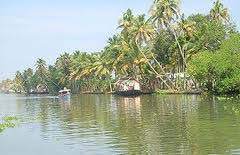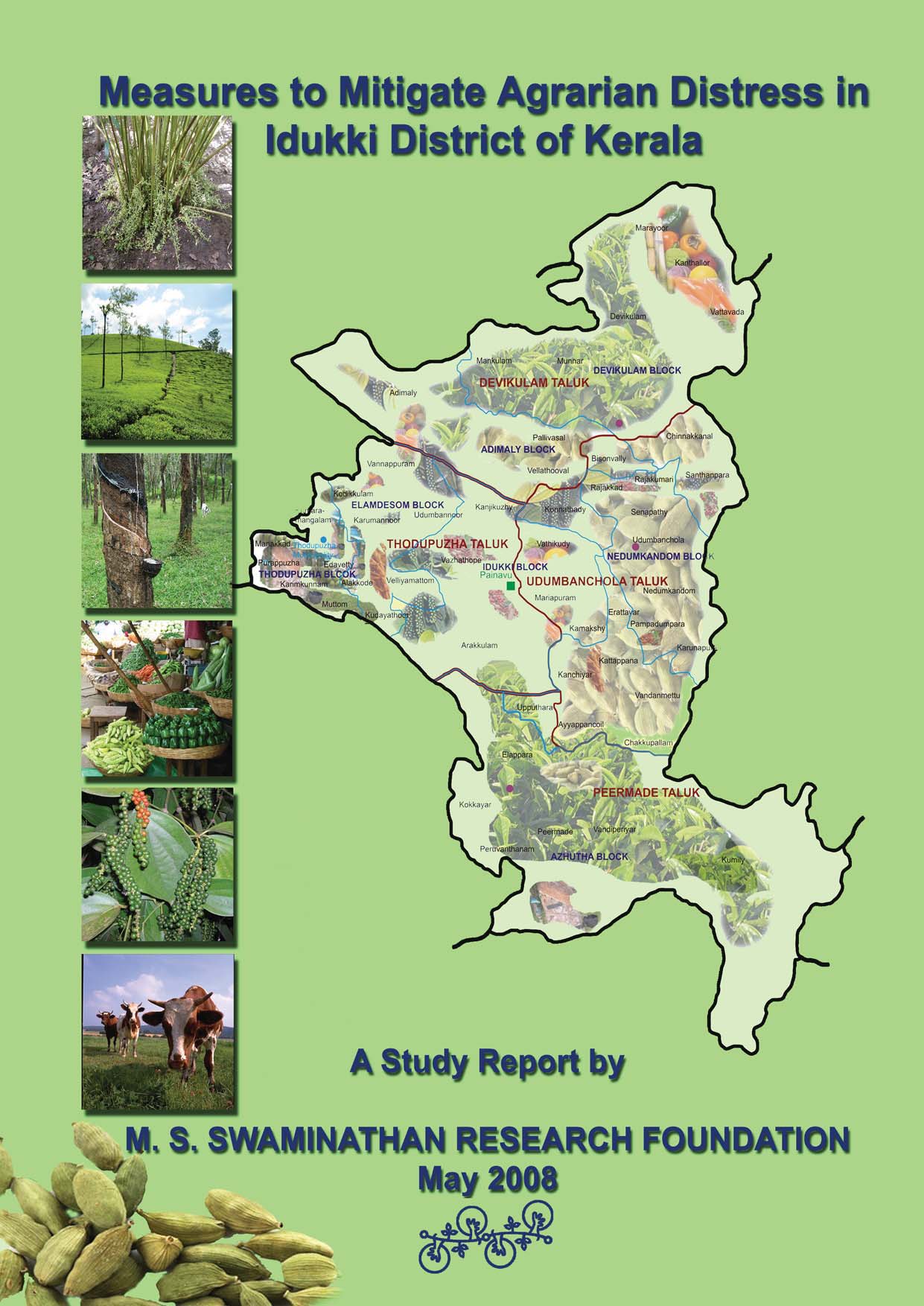/regions/kerala
Kerala
Water quality study and cost-benefit analysis of rainwater harvesting in Kuttanad, Kerala
Posted on 25 Aug, 2011 02:23 PM This thesis by Christina Tang for the Center of Environmental Studies, Brown University deals with a study of water quality and attempts to ascertain the net benefits or costs from rainwater harvesting under a variety of scenarios for households in various water supply conditions.
This thesis by Christina Tang for the Center of Environmental Studies, Brown University deals with a study of water quality and attempts to ascertain the net benefits or costs from rainwater harvesting under a variety of scenarios for households in various water supply conditions.
Eighty percent of the 7,00,000 citizens of Kuttanad, a region in the coastal State of Kerala have no access to clean water. In Kuttanad, intensive untreated human sewage and agricultural activities have caused severe surface water contaminations. At the same time, other sources of freshwater are unreliable for drinking: groundwater is acidic due to the soil conditions and iron leaching; freshwater from public tap is infrequent; and water supply from private vendors is extremely expensive.
Centre for Marine Living Resources and Ecology is looking for junior research fellows at Cochin – Apply by August 2, 2011
Posted on 15 Jul, 2011 01:06 PMCentre for Marine Living Resources and Ecology (CMLRE), Cochin under the Ministry of Earth Sciences, Govt. of India has been organizing, co-ordinating and promoting ocean development activities in the country which inter-alia include mapping of the living resources, preparing inventory of commercially exploitable living marine resources, their optimum utilization through ecosystem management and R&D in basic sciences on Marine Living Resources and Ecology.
Measures to mitigate agrarian distress in Idukki district of Kerala : A study report by MSSRF
Posted on 10 Jul, 2011 07:38 PM Although Idukki is generally perceived as a ‘spices district’ and a ‘plantation crop district’, about 95 per cent of the farmers here are small with tribal farmers constituting a substantial component. Public investment in agriculture in this district is very poor and this hampers agricultural progress and rural livelihoods in many ways.
Although Idukki is generally perceived as a ‘spices district’ and a ‘plantation crop district’, about 95 per cent of the farmers here are small with tribal farmers constituting a substantial component. Public investment in agriculture in this district is very poor and this hampers agricultural progress and rural livelihoods in many ways.
As a result of high cost of production of major crops and its volatile prices, small farmers who constitute the majority of the farming population have accumulated debt burden exceeding 700 crores. More than eighty per cent of this debt is due to crop loans to small and marginal farmers.
The recommendations in this report are made after giving due consideration to ongoing programmes and resources being made available thereof. These are mainly focused on the small, marginal and tribal farmers and other economically disadvantaged sections. The stress is on sustainability of agricultural production systems and strengthening the regional ecology.
Volunteering at the Vembanad fish count 2011 - An Arghyam field report
Posted on 04 Jun, 2011 12:00 AM
Guest post by Priya Desai
Background
This was organised by the Ashoka Trust for Research in Ecology and the Environment (ATREE). Held on May 26th 2011, we were joined by around 150 to 200 student volunteers from various higher educational institutions in Kerala, such as the Kerala University of Fisheries and Ocean Studies, St. Albert's College in Ernakulam, School of Applied Life Sciences in Chuttippara and the School of Environmental Sciences, Mahatma Gandhi University.
Green Film Festival' - A film festival on the environment, Centre of Gandhian Studies, 5th – 7th June, 2011, Thiruvanthapuram
Posted on 02 Jun, 2011 05:50 PMOrganizers:
- Centre of Gandhian Studies, University of Kerala
- Kerala Biodiversity Board
Venue: University Senate Chamber, Thiruvanthapuram
Vembanad Fish Count 2011, Ashoka Trust for Research in Ecology and the Environment, 26th May 2011, Muhamma, Kerala
Posted on 18 May, 2011 12:44 PMOrganizer: Ashoka Trust for Research in Ecology and the Environment (ATREE) - Community Environmental Resource Centre (CERC)
Venue: St.George Parish Hall, Muhamma, Kerala
Delight, India's first electronic public toilet in Thiruvanthapuram, Kerala
Posted on 11 May, 2011 12:34 PMWarm Greetings from Eram Scientific Solutions!!!
, is the part of USD $1 Billion, Eram Group. Eram Scientific is based out of Thiruvananthapuram, Kerala and working for addressing the pressing needs of the society through the effective use of Technology. We are giving much emphasis to R&D and now developing solutions to prevent Food Adulteration, Ensuring Women Safety, and Using Non Conventional Energy.
Delight is the blend of Information Communication and Engineering Technologies.
Environment Policy - Department of Environment, Government of Kerala (2007)
Posted on 03 May, 2011 09:42 PMThis policy document by the Department of Environment, Government of Kerala highlights the need for conservation of natural resources in the state of Kerala, in the context of increasing exploitation of resources and deterioration of the environment in the state.
The policy aims at mainstreaming environmental concerns in all the developmental activities and argues that the most secure basis for conservation is to ensure that people dependent on resources obtain better livelihoods from conservation, rather than degradation of resources.
World Water Day in Kerala- Call to address issues of water security
Posted on 07 Apr, 2011 05:52 PMCentre for Water Resources Development and Management (CWRDM) organised a panel discussion at Sasthra Bhavan on Saturday, 19th March 2011, in connection with the celebration of World Water Day which falls on March 22.
Kerala's bill to penalise Coke - Relief and compensation for Plachimada factory victims
Posted on 01 Mar, 2011 02:39 PM'The Bill proposes to get compensation from the company and to form a tribunal to provide time-bound compensation. The tribunal is to have a chairman, a technical member and an administrative member'.